Do Quakers Celebrate Christmas?
‘Tis the season to answer one of the Internet’s most burning questions…Do Quakers celebrate Christmas? We called up Friends from around the globe to find the answer(s), and you might be surprised at what they say.
Subscribe so you don’t miss an episode!
Do you celebrate Christmas? What do the holidays look like to you? Let us know in the comments!
Download the transcript and discussion questions.
Discussion Questions
- Consider these questions posed by Eileen Kinch, “What things about empire do I need to be avoiding? Where am I giving in where I shouldn’t?”
- How do you understand the Quaker adage that every day is holy?
Eileen Kinch: So does this mean we don’t believe in Christ’s birth? And that’s not what it is. We definitely absolutely believe in Christ’s birth. Christ can be born in us at any time.
It’s probably less important that Christ was born, but more important that Christ is born in us. And that can happen at any time. And it’s not limited to any time of the year, which can also get caught up in consumerism.
Georgia: Hello. I’m Georgia Sparling and Happy Holidays! It’s that time of year when Christmas trees go up, radio stations play “Jingle Bells” on repeat, the smell of sugar cookies wafts from the kitchen, and people start googling: Do Quakers celebrate Christmas?
So…do they?
I’ve called up a bunch of Friends to find out. They come from across the United States and across the globe, from silent meetings to evangelical meetings. And I asked these Friends if they observe Christmas, what traditions they have, what it means to them, and also…how Quaker is it to celebrate holidays at all?
Georgia: We’re going to start off with some background, and for that, I spoke with Tom Hamm. Tom is a now-retired professor of Earlham College and he has written extensively on Quaker history. I sat down with Tom in his living room this past summer in Richmond, Indiana, and I asked him to fill me in on the history of Quakers and holidays.
Tom: Quakers, like other 17th century Puritans disapproved of holidays, they believed that no date or time was any more sacred than any other. And that would get them into trouble at times. For example, when Quaker store keepers would open their shops on Christmas Day. And that would annoy a lot of their neighbors.
Georgia: There were even Friends who were fined for opening their doors on December 25th.
Tom: You don’t really see Quakers relaxing all that sort of understanding until the 19th century. You know, by the 1840s and ’50s I’m finding references in Quaker family letters and diaries to celebrating Christmas or giving Christmas gifts. But, you know, I found at least one Quaker minister early in the 20th century, who considered it part of her commitment to truth that at Christmas time tell small children there was no such thing as Santa Claus.
Georgia: So they didn’t celebrate Christmas, but why not? Stephen Angell, a professor at Earlham School of Religion, said Puritans also objected to celebrating Christmas but the Quakers took it a step further.
Stephen Angell: It’s connected with a general idea or general conviction among Quakers that what we should be about is a kind of holiness where you know, to put it in its boldest terms, you possibly put it in where we’re experiencing heaven every day, you know, I mean, so you have kind of that ultimate celebration. And therefore, the particular, you know, seasonal events that were very big in Anglicanism at the time really weren’t necessary, because we could be rejoicing in the Spirit all the time, even when stuck in the darkest dungeons in England.
Eileen Kinch: Early Friends were very concerned about obviously being truthful, but also not giving credit to pagan gods and goddesses. For example, Sunday, on the day Sunday, one might worship the sun. On Monday, one might worship the moon. I believe on Tuesday it was the… it was a god of war. But Friends didn’t believe in these gods. So why say their names?
Georgia: This is Eileen Kinch, clerk of the Tract Society of Friends. In addition to publishing, well, Quaker tracts and pamphlets, the society has been printing a Quaker calendar since 1885.
Eileen: Our calendar simply says first month, second month, third month. And then the days of the week are very simple. First day, second day, third day, fourth day, fifth day, sixth day, seventh day. We do list moon phases, but we don’t list any holidays at all. What’s important but also distinctive about our calendar is that it includes quotations. It will have a quotation from a particular Friend, and then a Bible verse that relates to it.
Georgia: Eileen is a conservative Friend who lives in Pennsylvania. The Tract Society calendar was a fixture in her family home, Christmas…not so much.
After her parents switched from Friends General Conference to Conservative Quakerism, they observed Christmas in a very limited capacity for several years.
Eileen: That was a bit of a point of contention for a while. At first, my father was not so keen on observing the holiday of Christmas. And so for one or two years, we didn’t celebrate with the rest of our extended family. And that was very hard. Also… I was going to a Mennonite school. My parents requested that I not participate in the Christmas party. So instead I spent the Christmas party in the school office. Now this sounds bad, but in some ways it wasn’t because I got specialized attention from the staff there. They would give me things to do and they would give me candy to “keep up my strength,” as they said. It sounds bad, but it wasn’t all bad. But sometimes it did feel pretty depressing.
Teachers said they respected my parents for that, but there was a lot of confusion. So does this mean we don’t believe in Christ’s birth? And that’s not what it is. We definitely absolutely believe in Christ’s birth. Christ can be born in us at any time.
It’s probably less important that Christ was born, but more important that Christ is born in us. And that can happen at any time. And it’s not limited to any time of the year, which can also get caught up in consumerism. That’s been true for quite a long time. I believe one portion in George Fox’s journal mentioned revelries that were going on on Christmas Day. He seemed kind of disgusted by it and instead gave money to the widows that he knew.
Georgia: Eventually, Eileen’s family did start celebrating Christmas again, though it’s a low key celebration. She said among Conservative Friends she knows, there is a range of observances.
Eileen: Some people feel absolutely fine with the Christmas tree and others just prefer not to have decorations in their home. At least at my meeting there’s no, say, special Christmas meeting or anything. We don’t have special worships to celebrate holidays. Certainly as seasons approach, messages during meeting may reflect a particular season.
We may talk about resurrection at Easter, but at any other time, we may talk about Christ being born, and it may be closer to Christmas time, or maybe not.
Georgia: And as for the calendars, Eileen says a majority of them are purchased by Conservative Friends, though she’s sent them as far as Costa Rica and Australia. This year they’re printing about 300 in wall and pocket sizes, which you can order for only $2 each. For Eileen, the calendar is worth much more than that. It helps her keep in touch with Quaker traditions and values.
Eileen: Knowing that other Friends have felt this way over the years and there are still Friends who feel this way, it just makes me feel connected and part of a tradition.
And that makes me feel grounded. I think another thing that this calendar reminds me of is just how pervasive empire can be. Roman gods and goddesses were part of an empire that oppressed people…So that’s in the past, but today. What things about empire do I need to be avoiding?
Where am I giving in where I shouldn’t? Now of course these are all open questions and I would say maybe some days I’m better at it than others. But I would say the calendar is a good reminder that sometimes you need to say no. And sometimes you need to be different because it’s part of being faithful.
Georgia: After the break, we’ll explore the idea that every day is holy. We’ll also find out the lengths one Friend will go to celebrate Christmas and we’ll learn how meetings around the world observe the holidays.
Right Sharing of World Resources (Georgia narration): Do you want to have conversations about global equity? Are you interested in connecting with like minded people who are interested in building a more just world?
Join Right Sharing of World Resources the 3rd Tuesday of each month on Zoom. Hosted by Nathan Kleban, these Right Sharing Conversations will explore different aspects of what sharing the world’s resources could look like and how this might emerge in our day-to-day lives.
Right Sharing of World Resources is a Quaker organization that partners in community transformation with women’s groups and Quakers globally. Learn more about these conversations and how to get involved at https://rswr.org/community-engagement. That’s rsrw.org/community-engagement.
Georgia: Welcome back. In addition to the early Quakers’ rejection of pagan holidays, Friends felt there was no need for special observances of Christmas because every day should be holy, every day should be an observance of the birth of the light of Christ. This was an idea that was repeated often when I spoke with Friends about the holidays, which you are about to hear. One Quaker I spoke with, though, wasn’t having it.
Miriam Fisher: Come on. Every day is holy? Give me a break. Are you Thich Nhat Hanh? If you’re not, then probably every day isn’t holy.
Georgia: That’s Miriam Fisher. She is a lifelong Quaker and she’s very into celebrating Christmas. She’s even led forums on her perspective on holidays as a Quaker. Unlike Friends of old, she sees no conflict with her Quakerism and stringing up Christmas lights outside, decorating a Christmas tree, and putting presents beneath it.
Miriam: When I first got married, I was married to a convert, and you know converts are always a lot more fanatic than people born into it.
And we were married in September, and it’s like December 15th, and I’m like, okay, let’s go get a Christmas tree. And he’s like, Quakers don’t celebrate Christmas. I’m like, well, in this house, we do. And so we got a Christmas tree. And then I wanted Christmas lights on the house, and that was a bridge too far. So when my daughter was three and I was nine months pregnant — my son was actually born the next week — he took my daughter to New York, and I went out on a ladder in the snow and put up Christmas lights and dared him to take them down when he came back.
Georgia: Miriam, who also embraces the pagan aspects of Christmas, might have shocked the early Quakers who even sent their kids to school on December 25th, but she has given some thought to why she feels it’s ok for Friends to celebrate Christmas and other holidays.
Miriam: My mother kept on the bulletin board in our kitchen the quote from Margaret Fell when she was admonished for wearing a red dress to meeting. And she wrote, “this is a silly poor gospel.”
There are a lot of things that early friends did and actually later friends more into the 18th century that I think fall into that category. And I think holidays is one of those things. And since after all, we’re supposed to believe in continued revelation, I think the continued revelation says holidays are fabulous.
What I think is important about the Friends religion is living an intentional life.
And so holidays are no exception. I mean, one of the things that George Fox preached that I hold to is that you shouldn’t do things without thinking about them. So I think holidays, if you don’t think about them, are not good. But holidays aren’t any different than anything else that way. You should be thinking about what you’re doing.
They are very ancient traditions, very ancient, and they mark the natural cycles.
And I’m a big environmentalist, and I find that our separation from the natural world is one of the reasons why we’re in the fix we’re in, that people are separated from the seasons and the changes and from the natural world around them. So the holidays come from the natural cycle. And so the more we can be aware of the seasons changes in the natural cycle, I think the better off you are.
Georgia: Intentionality is something that Elizabeth Terney has also been thinking about when it comes to Christmas. Elizabeth recently completed her chaplaincy studies at Earlham School of Religion and is co-pastor of West Elkton Friends Meeting in West Elkton, Ohio. Elizabeth has begun to reconsider the liturgical calendar used by some Christian denominations.
Elizabeth Terney: As part of my seminary coursework, I took a class called patterns of worship, where I learned about the traditional liturgical calendar, Advent, all these other timeframes and days, Epiphany and all these things that I was, had no idea about before. And I thought, Oh, this is I don’t know that I like this, like making days special. But the more I sat with it, the more I realized it was a way of focusing the mind at least once a year on those topics.
And it didn’t necessarily mean the day was more holy, but it was kind of like it was kind of like having your daily devotional turn to Advent, so now you’re thinking about the upcoming hope of the birth of Jesus Christ and the upcoming hope of the kingdom of God. And, you know, going through Lent and in a way that focuses your worship and your mind and your thoughts. And so I think there’s something remarkable about doing that together as a community, and being able to discuss it with other people. And so I don’t necessarily think the days are holy, I think that the thoughts and questions and meditations are holy.
Georgia: My next guest is Gail Koehler. Gail is a member of Lexington Friends Meeting in Kentucky, and I met her this past summer at Ohio Valley Yearly Meeting. She also questions the concept of every day being holy.
Gail Koehler: It’s interesting that historically, Quakers would try to have almost no differentiation, every day is holy. I don’t think for me that works. I think if it does for somebody, if that’s how deeply spiritual they are and every single day is really, really holy. But I know at our Quaker meeting, we don’t, I think sometimes saying that no day is more special than another can come across as kind of wet blanket-ish.
And you want to be able to let children enjoy things like holidays. One of our Quaker practices in our Quaker meeting is to have what we call a holiday party, we don’t call it a Christmas party, because we appreciate that people can be celebrating lots of different things, whether it’s, you know, Hanukkah, or something completely different. I do think that a lot of Quakers find a lot of richness in getting away from a sort of like conventional and very materialistic celebration of whatever holiday it happens to be. But having a chance to celebrate, I mean, again, what’s more human than being celebratory about something and having a chance to really be joyful.
Georgia: We’ve learned how some individual Friends celebrate the holidays. Now, I want to take you around the world to learn about the traditions of meetings in the US and beyond.
Christmas is a communal celebration for many meetings, including Puente Negro Monthly Meeting in La Paz, Bolivia, which is a programmed evangelical meeting. I spoke with Myron Guachalla, a member of that meeting, to find out what they do around the holidays. Myron recently moved to the US to study at Earlham School of Religion.
Although he didn’t grow up in a Quaker household, Christmas was never a major holiday for Myron’s family. At his meeting, though, Christmas is a time for coming together.
Myron: What we do is we have this common meal together. One of our members used to live in Italy. Well, he knows how to do the most amazing pizza you’ve ever tried and we all eat together.
Some young Friends come to the city to study and they don’t go back to their hometowns or there are some people that, you know, they don’t have as much as a big family. So we spent the Christmas night together, like all of us and then the next day we go to play volleyball or something. All the month we sing like Christmas songs at a Sunday worship. And we focus on the fact that the Christ has come into the earth.
We strongly believe that it is not just the special holidays that we have to be together. It is through all the year, but the Christmas is like a reminder or like the start of doing that throughout the year. It’s like the family is not you know, just mother, father, sister, but it is the wider community.
Georgia: Myron said they also welcome the neighborhood into their celebrations, oh and by the way, I asked Myron why they play volleyball on Christmas. He said it wasn’t a Bolivian tradition or anything, just something that folks in his meeting do.
And lest you think that programmed meetings are the only ones that celebrate Christmas, let me tell you about Monteverde Friends Meeting. It’s a mostly English-speaking meeting tucked into the mountains of Costa Rica.
The meeting was founded in the 1950s when a group of Friends, mostly from Fairhope, Alabama, relocated to the Central American nation. I spoke with the current clerk of the meeting, Harriet Joslin, about what holidays look like in Monteverde.
Harriet: Christmas is a really big deal here. And I talked to Lucky Guindon, who was one of the founding Quakers to come here and she said the very first Christmas they were here, they did the Christmas story, they acted out the Christmas story. People had different parts and they stood up in front of the meeting which was in a little tiny cabin and read the Christmas story and then they exchanged homemade gifts. So, that tradition of having a program and exchanging homemade gifts has continued up to today.
Georgia: There have been handcrafted cradles, original poems, quilts, and toys. One I really loved was the gift of flower bulbs that have now been blooming for at least three decades.
Harriet: Over the years, other kinds of traditions were added, including the singing of Christmas carols which starts the first Sunday in November after meeting and then it changes homes every week until Christmas. Another part of that singing tradition is the Christmas caroling which is kind of like cross-country caroling. It started with the young people going from house to house and singing carols. And now a lot of people join in and they sing American Christmas carols and Spanish Christmas carols that are more common to the Costa Rican community in Spanish and English. And they cross fields and over fences and you know through the river and that’s a big deal for a lot of people.
Georgia: There’s also a large community gathering with hot drinks where everyone brings cookies. And after meeting on Christmas morning, they have a big roast. It used to be with a pig and chickens but since covid they’ve switched to hot cocoa, hot dogs, and veggies.
Harriet: Often in the mist and the wind. So it feels very wintery.
Georgia: First Friends in Indianapolis, Indiana, is another meeting with vibrant Christmas traditions. I’ve actually never been to a church that had as much on the calendar as this one does in December, and I used to go to a church that had camels and sheep walk through the sanctuary for the Christmas pageant.
Bob Henry: Actually, Christmas is huge at First Friends, weirdly amongst Quakers, which don’t usually, you know, go real hog wild on Christmas or major holidays. Our Christmas season starts the very first Sunday of December, and we have something special almost every Sunday leading up to Christmas.
Georgia: That’s First Friends pastor Bob Henry, who you may remember from his sermon earlier this season. That episode was called “Speaking Truth To Power: Answering The Call.”
Bob: The very first Sunday in December is our blue Christmas service.
And we recognize and remember all those who have lost someone throughout the year. The second Sunday, we have a normal meeting for worship in the morning, and then we have our annual Vespers, which is kind of like a big lessons and carols, with our choirs and special music. And it’s a huge, huge production….
Georgia: Bob said on the third Sunday they have a Christmas tea and the fourth is a children’s Christmas pageant followed by a birthday cake for Jesus. On Christmas Eve they have a jazz service and unprogrammed worship the Sunday after Christmas.
I asked Bob how First Friends keeps a Quakerliness to these traditions.
Bob: We always continue to keep a time of silence or waiting worship as a part of everything. So there’s that as a key piece to all the worship there is. I think we focus on like joy and peace and and those type of subjects rather than really, you know, delving into exegeting scripture.
I usually try to talk about some of the main characters, of, of the Christmas story. We don’t like have Advent or, you know, a preparation for Christmas. The whole time is kind of focused on, you know, delving into the preparation of our hearts and our minds, for this season.
And then we work up to a celebration. That’s why our jazz service at the end of it is kind of a family come together one last time before we all kind of take a break for the actual holiday.
Georgia: Of course there is also a spiritual component to the celebration of the holidays and that meaning is different for different Friends. Miriam, who we heard from earlier said she embraces the paganistic aspects of the holidays.
Miriam: So I’m like totally into the pagan thing, right? You you bring a tree inside to symbolize the green and the rebirth. But there’s a Christmas message that I also like very much, which is that the baby Jesus was born poor. And so today, there’s somebody poor, being born, who has a message for the world. So that particular thing, I’m into the Christian message of Christmas, as well as the pagan message of the light coming back.
Georgia: For Australian Friend Helen Gould of Central Coast Meeting, the Christmas season is a time to help other Friends understand the stories of the Bible and to separate those stories from the monetization of Christmas. It’s a topic she’s spoken and written about.
Helen Gould: It distresses me the commercialization of Christmas and the way that the whole significance seems to have been lost. So I guess I wanted to recover that to some extent.
Actually a lot of people in our meeting come from some religious background or other and feel like me, they feel a loss about now knowing how to make meaning from stories which have been debased in the commercial culture and we’re not sure anymore what they mean because we’re not literalist. We know that there are contradictions and paradoxes and yet these stories still speak to us.
Georgia: Helen says it’s important to know the context of the Bible in order to understand what it says.
Helen: And I think a very good way of looking at the Christmas stories is that they’re parables about Jesus, about the meaning of Jesus to the people who made and listened to and repeated those stories.
Georgia: And in reading the stories, she says we can see that Jesus modeled peace through justice and although it’s not easy, Friends can continue that today.
Helen: I actually think the early friends really got this about Jesus being an incarnation of God and that we are too to the extent that we embody that way of peace through justice.
Georgia: So, do Quakers celebrate Christmas? Seems like the answer is mostly yes. I reached out to Friends of many different persuasions, and found that even those who are more traditional, still observe Christmas in some way — for some that is with lights and often Christmas trees, for others it’s acts of service and time with family and friends and Friends who are family.
That doesn’t mean that every day shouldn’t be considered holy, it just means, maybe, that this particular day is a reminder of how holy the days are.
So, to all who celebrate, Merry Christmas and Happy Holidays.
Thank you to my guests and thank you for listening! Head over to QuakerPodcast.com and share your thoughts on celebrating Christmas (or why you don’t).
For more information on the Tract Society of Friends’ Calendar, check out the link on our episode page at QuakerPodcast.com.
This episode was hosted and produced by me, Georgia Sparling.
Studio D mixed the episode.
If you like what you hear, please consider becoming a Podcast supporter — you can do that on a monthly or a yearly basis. Head to QuakerPodcast.com and click on Support to learn more.
Recorded, written, and edited by Georgia Sparling.
Original music and sound design by Jon Watts (Listen to more of Jon’s music here.)
Mixed and mastered by Studio D.
Christmas artwork from Freepik.
Supported by listeners like you (thank you!!)
Also supported by Right Sharing of World Resources
Do you want to have conversations about global equity? Are you interested in connecting with like minded people who are interested in building a more just world? Join Right Sharing of World Resources the 3rd Tuesday of each month on Zoom. Hosted by Nathan Kleban, these Conversations will explore sharing the world’s resources and how this might emerge in our day-to-day lives.
Learn more about these conversations at https://rswr.org/community-engagement.
Referenced in this episode:
- Learn more about The Friends Tract Association calendar.
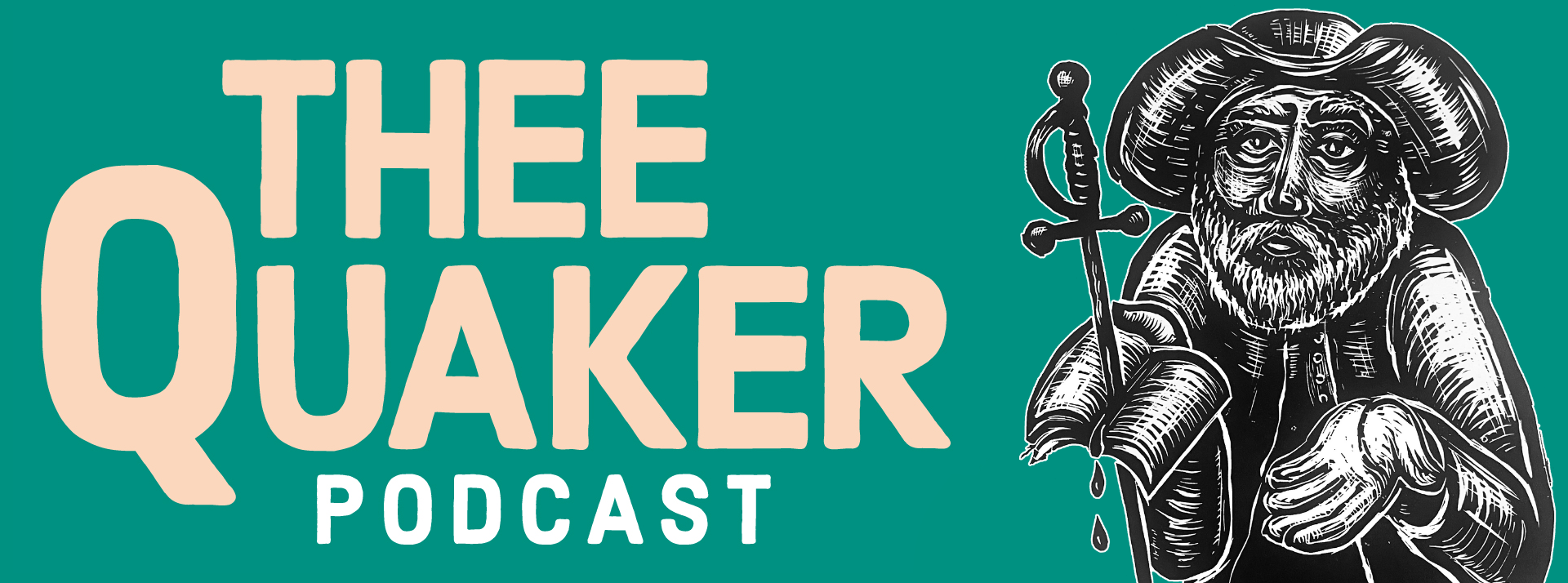

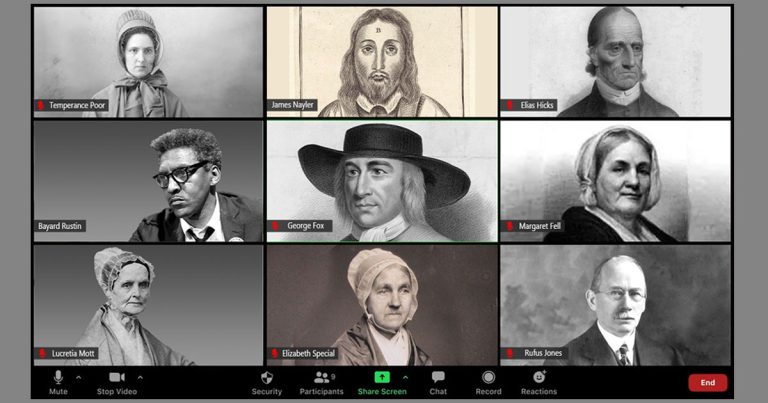
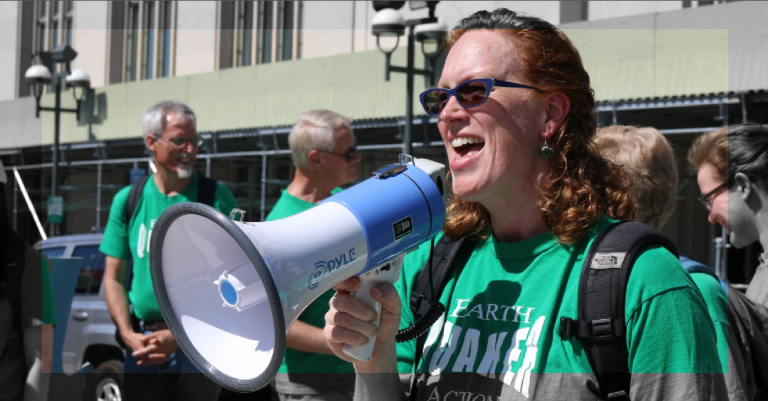
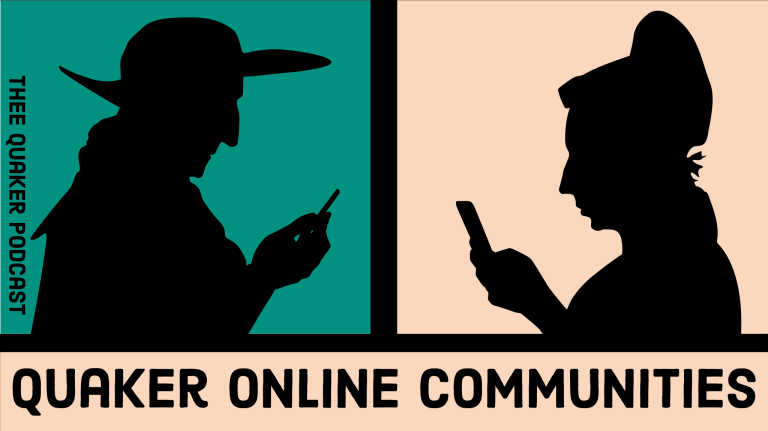
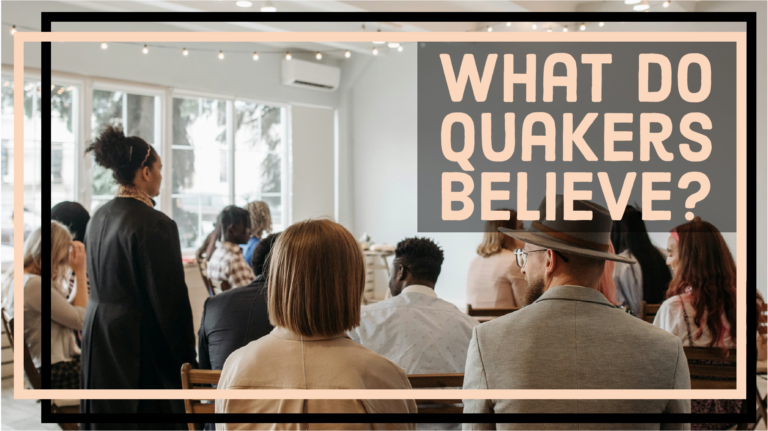

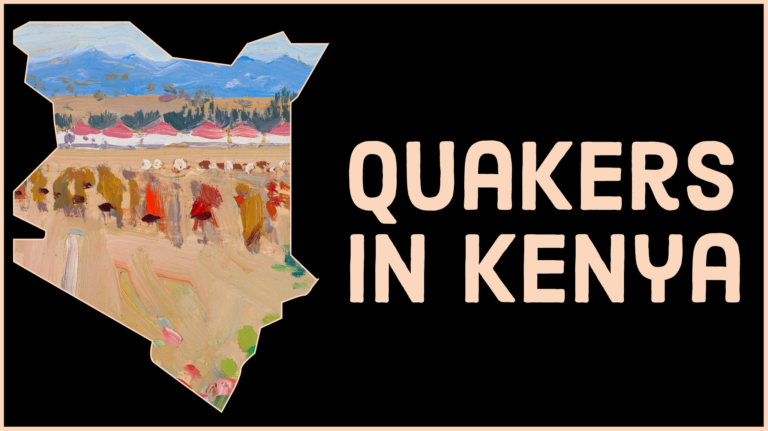
Hi….Eileen, in the episode, talks about the Quaker calendar. Where can I find these and buy them? The printable order form says a 2020 calendar, but nothing for 2025.
Email Clerk@tractassociation.org!